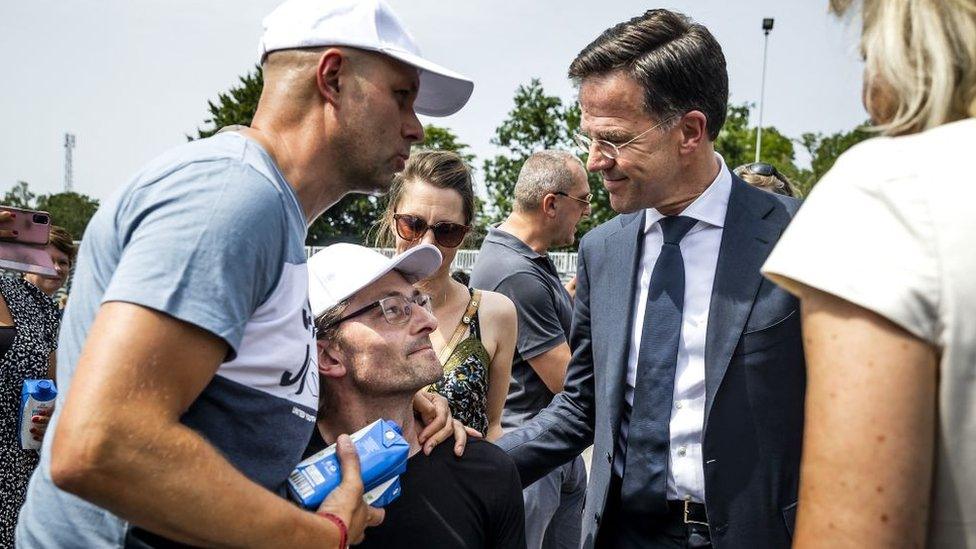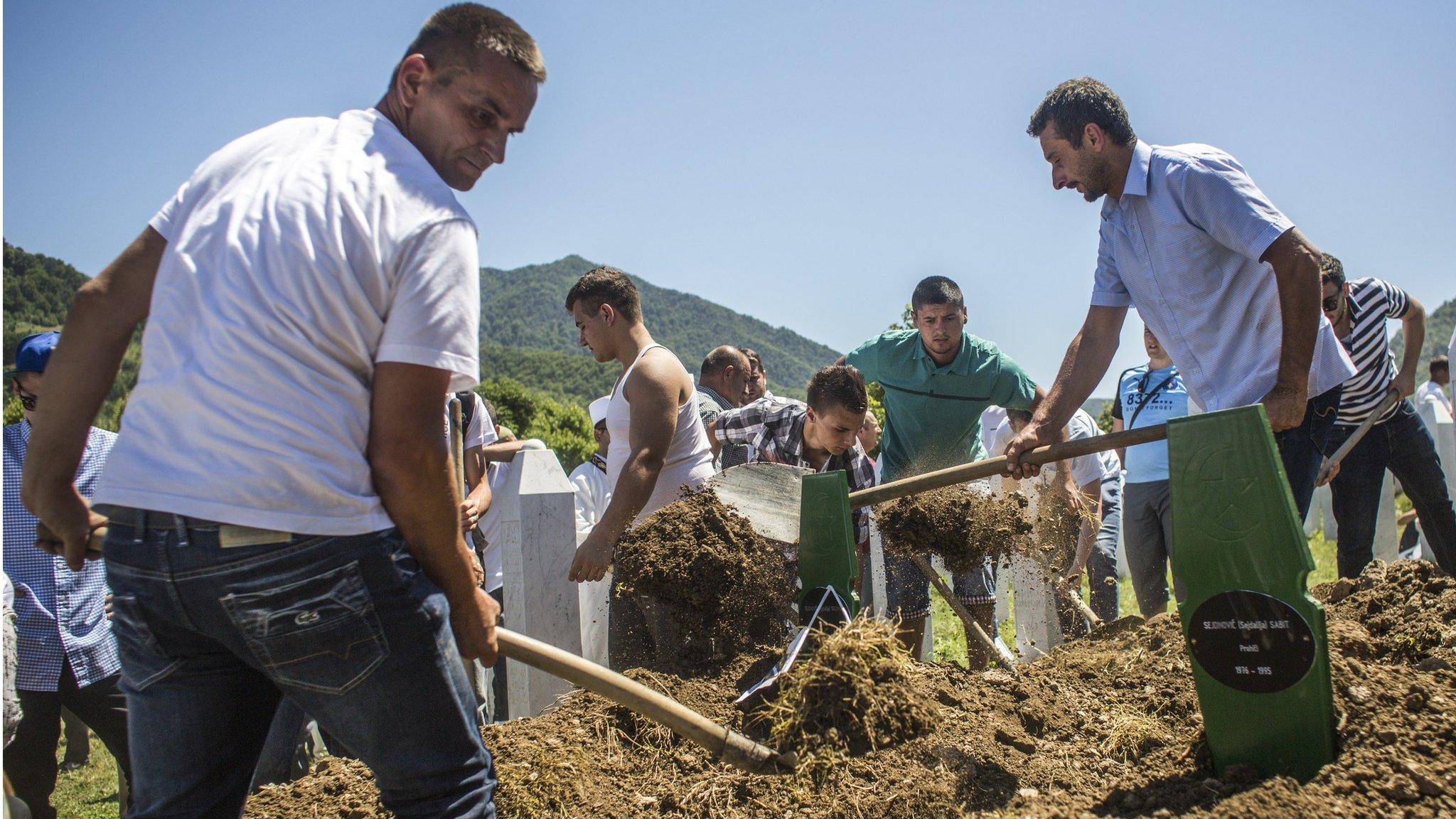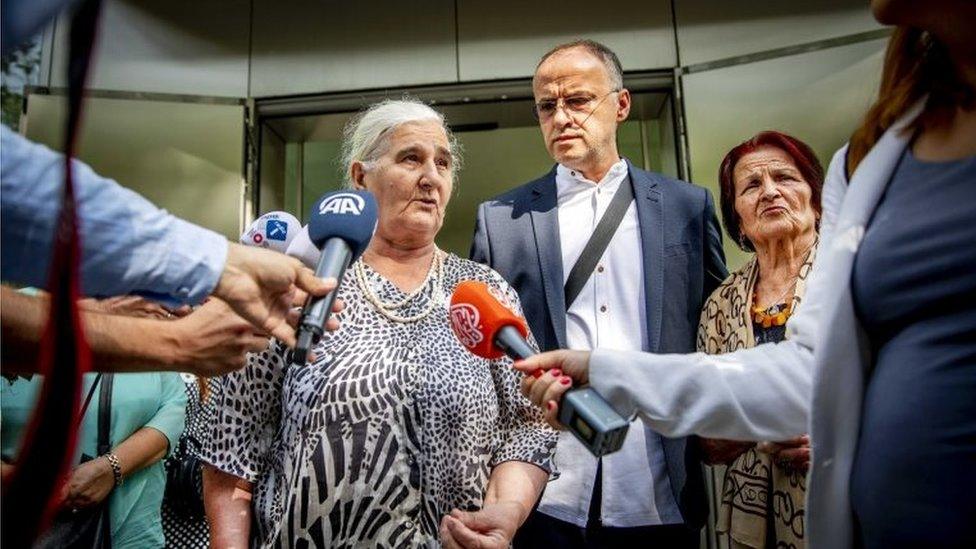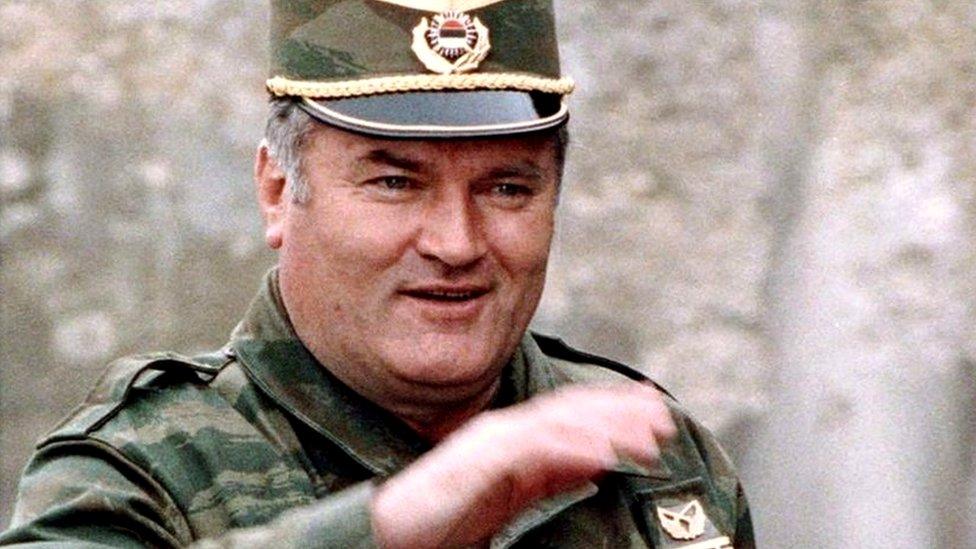Dutch government apologises to Srebrenica veterans
- Published

The Dutch government has apologised to hundreds of ex-soldiers sent to defend Srebrenica during the Bosnian war.
Prime Minister Mark Rutte said the troops had been underequipped to stop the massacre and were asked to perform an "impossible task".
In July 1995, some 8,000 Muslim men were massacred after Dutch forces were overrun by Bosnian Serb troops.
Previously, Dutch governments have insisted fault lay with the UN for failing to provide air support.
But speaking to veterans at a military base in central Netherlands on Saturday, Mr Rutte accepted troops of the Dutchbat III peacekeeping force had struggled because "your mandate, your equipment and the military support you received during your mission were all inadequate" for a mission "that ultimately proved impossible to carry out".
"Today, I apologise on behalf of the Dutch government to all the women and men of Dutchbat III. To all of you here, and to those who are not with us today," Mr Rutte told veterans.
"With the greatest possible appreciation and respect for the way in which Dutchbat III kept on trying to do the right thing, under very difficult circumstances, even when that was really no longer possible."
In addition to the apology, soldiers deployed to Srebrenica were also given the Bronze Medal of Honour from Defence Minister Kajsa Ollongren.
In July 1995, amid a campaign of genocide by Bosnian Serb forces, thousands of Muslims fled to a UN safe zone in Srebrenica. They were protected by lightly equipped Dutch troops who were quickly overrun during a Bosnian Serb advance.
After securing the surrender of the Dutch forces, Bosnian Serb troops under General Ratko Mladic took aside men and boys aged between 12 and 77 for what they said would be an "interrogation".
Over the next five days, the men were executed and buried in mass graves by Mladic's troops.
Serbia has always denied the killings formed part of a campaign of genocide, but accepts it was a crime.
Mr Rutte's apology comes a year after a report made a series of recommendations into how to support the 850 troops of Dutchbat III, many of whom suffered from post-traumatic stress disorder after their experiences of the war.
And in 2019 the Dutch Supreme Court ruled that the Netherlands was partially liable for the deaths of some 350 men in the massacre, ruling that they had removed the men from a Dutch base despite knowing they "were in serious jeopardy of being abused and murdered" by Bosnian Serb forces.
Related topics
- Published24 March 2016

- Published19 July 2019

- Published22 November 2017
